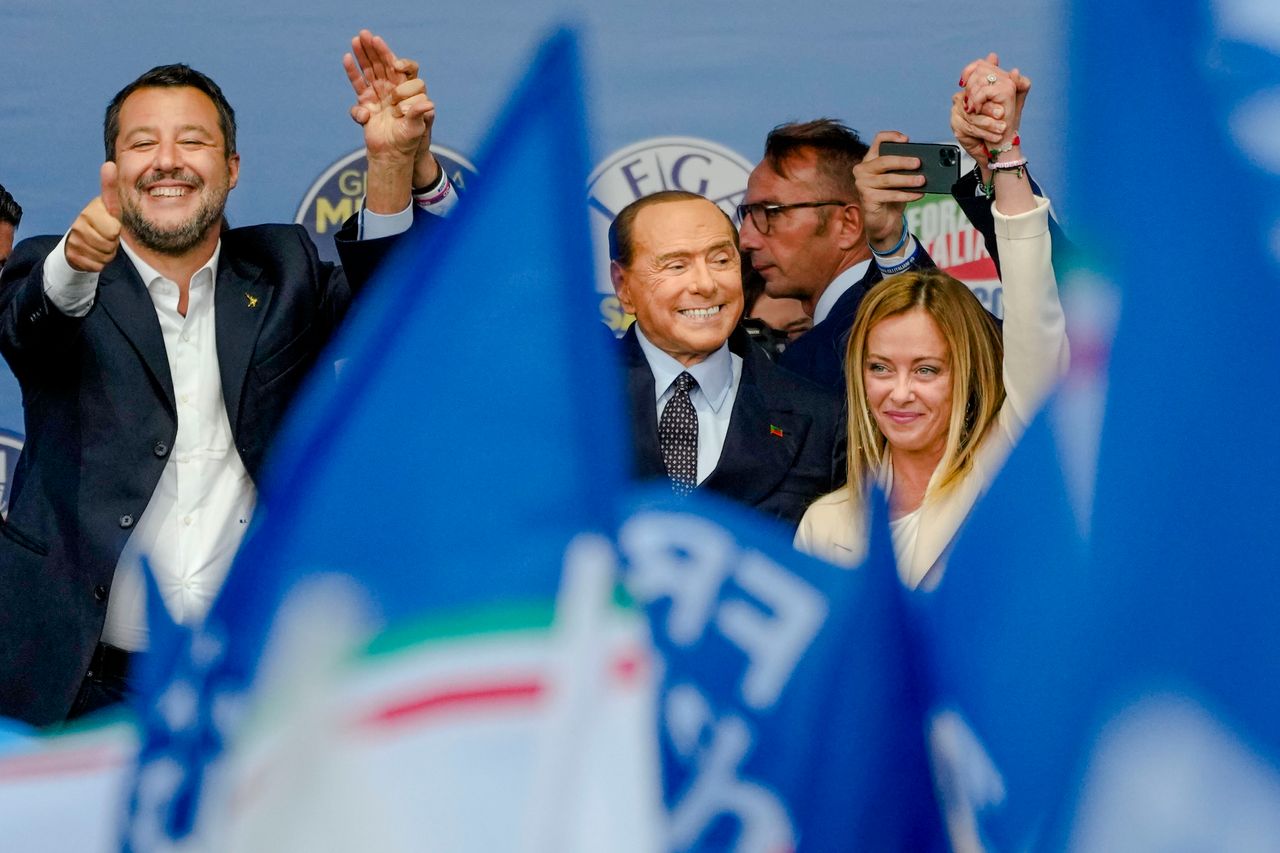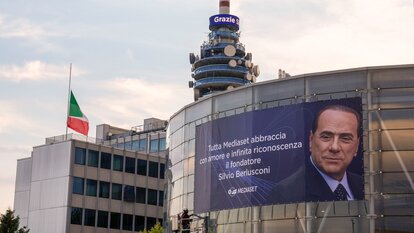Italy
The Rise of Populism in Italy and the Role of the Media

Berlusconi: Media Mogul, Billionaire, and the First "Modern Populist". How he shaped the Italian media landscape and how his monopoly with his own television and radio stations made him one of the most powerful men in Italy. Even a year after his death, press freedom in Italy is being abused and partly threatened by right-wing populists.
We go back to 1993: Italy experienced one of the greatest political upheavals of the post-war period: the Tangentopoli scandal. Prosecutor Antonio Di Pietro uncovered a system of corruption, abuse of office, and illegal party financing, leading to comprehensive electoral reform. The scandal brought down the established party system and opened the door for Berlusconi to the political stage.
At the time, the 57-year-old Berlusconi came from modest origins and had worked his way up to become a billionaire, though the source of his enormous initial capital remains unclear to this day. There are suspicions of mafia connections, but these have never been legally proven.
Through questionable methods, Berlusconi managed to buy the three largest private television stations in the 1980s and 1990s. Even before his political career began, there had been scandals and lawsuits against him: private ownership of nationwide broadcasting television stations was illegal in Italy at the time. Berlusconi used his good relations with the then Prime Minister to change the legal situation so that he could retain the majority of his shares in television and radio stations.
In 1994, Berlusconi founded Forza Italia, a party strongly centered around his persona as a cult figure. In the same year, he was elected Prime Minister after an unprecedented election campaign. Berlusconi used his extensive power, including his media empire and his own PR agency, to win over voters. He conveyed a sense of renewal and fueled populist sentiments like "We ordinary citizens against the corrupt elite."
Thanks to his enormous media presence, Berlusconi was able to suggest to insecure citizens that he would dismantle Italy's corrupt systems. He propagated a "us against the corrupt elites" narrative and promised that his victory would lead to a functioning economy and more security. For his campaign, he also won the support of the then Fiat CEO Agnelli, who declared: "If he loses, he loses. If he wins, we all win." This typical populist statement assumes a homogeneous, unified popular will. Anyone who did not want Berlusconi as president was automatically excluded from the homogeneous "people."
Following his electoral victory in 1994, he served four, though not consecutive, terms as Italy's Prime Minister. His promises to lead Italy to economic upturn, fight corruption, and raise the general standard of living remained unfulfilled.

At the end of his tenure as Prime Minister, Berlusconi left the country with significant financial challenges, a high unemployment rate, and in a difficult economic situation, which was also influenced by a global economic crisis. His likely "greatest legacy" remains the foundational stone for the "modern" populism that exists in Europe today. Berlusconi's modern populism can best be distinguished from the old populism by its "salon capability." The unspeakable is repeatedly hinted at and eventually expressed; in his television and radio appearances, there were no neutral classifications, making the gradual coarsening of what could be said possible. Stirring up hatred within the population against the "corrupt elites" became much easier, and through his bourgeois facade, he was able to capture a much larger voter group. Such phenomena can also be observed today; through social media with perfected algorithms, like those on TikTok, populists today can make the unspeakable socially acceptable without damage and ultimately spread their ideas of an exclusive, homogeneous people without third-party classification.
Today we observe how the right-wing populist government under Giorgia Meloni tries to restrict press freedom in Italy. At the end of April this year, Gianni Berrino, the Senate faction leader, presented a bill that provides for severe penalties for journalists for "defamation" of politicians by the press. Although this proposal quickly received criticism from left and right, including from their own coalition partners, it shows how populist politicians in Italy want to misuse and restrict press freedom to their advantage.
Although Meloni has so far cooperated with the EU and pursued less worrisome policies than initially feared at her election, her policies and those of her party should not be underestimated. Her populist and nationalist attitudes pose a real threat to Italy's press freedom. It is crucial for all democrats to remain vigilant and closely monitor developments in Italy, as populist tendencies and attempts to manipulate the media are still present and could gradually undermine the guarantees of liberal democracy.
